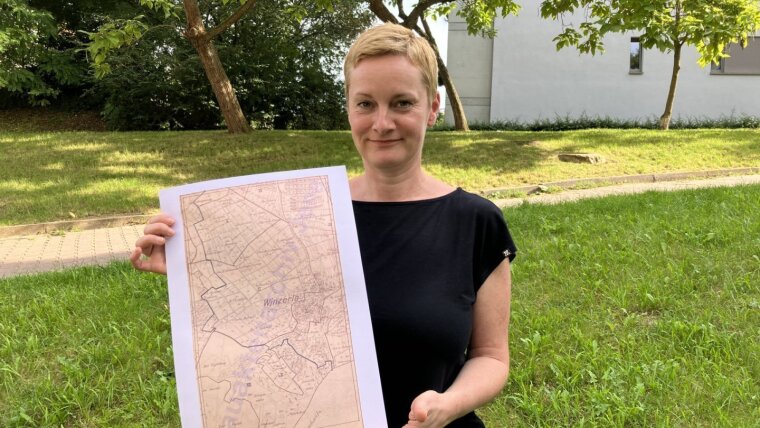
Published: | By: Stephan Laudien
"Field name research in Thuringia" has now been included in the State Register of Intangible Cultural Heritage in Thuringia. It is now listed as a good practical example alongside Friedrich Fröbel's kindergarten idea, Brehm's animal world and the Thuringian bratwurst culture. Senior lecturer Dr Barbara Aehnlich from Friedrich Schiller University Jena is delighted with this honour because it brings field name research into the public eye. "Inclusion in the state directory highlights the value of field name research and in particular recognises the work of the many volunteers," says Barbara Aehnlich, who is in charge of the field name directory in Thuringia together with David Brosius. This archive is based at the Friedrich Schiller University in Jena and currently contains around 150,000 entries. Dr Aehnlich submitted the (full) proposal for inclusion in the state directory together with the "Heimatbund Thüringen e. V." last year.
Oral examination certificates of language development
As Barbara Aehnlich explains, field names are the names of uninhabited places and features in the premises that people use to orientate themselves in the landscape. Examples include Aue, Hain, Sommerleite or Am Hange. They also include the names of watercourses, mountains and valleys as well as names of forests or fields. "At the same time, field names are valuable sources of the lives of our ancestors," says Barbara Aehnlich. For example, field names can be used to localise former commercial enterprises as well as how migrants were treated. At the same time, the names are examination certificates of language development, as they were originally only passed down orally.
Field names have been collected and archived at the University of Jena for around 100 years. To date, around 150,000 names have been collected, with the main work being carried out by those interested in searching for traces in their villages or towns. Since 2019, the field name archive has been digitised in cooperation with the Thuringian University and State Library in Jena. So far, around 80,000 entries have been digitised. As Barbara Aehnlich says, the funding application for financing until the end of 2025 has just been approved by the Thuringian State Chancellery. The collection and recording of Thuringian field names can therefore continue.